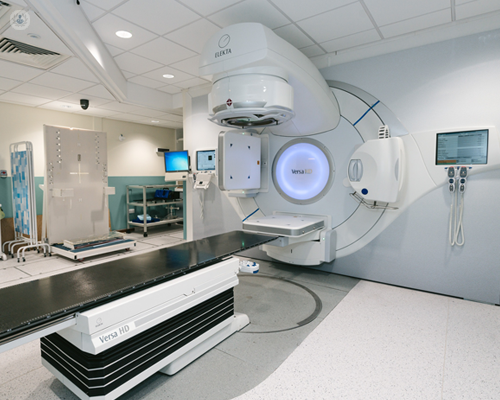Treatment options for non-Hodgkin's lymphoma: From chemotherapy to immunotherapy
Written in association with:Non-Hodgkin's lymphoma (NHL) is a type of cancer that originates in the lymphatic system, which is part of the body’s immune system. Treatment for this condition depends on various factors, including the type and stage of the lymphoma, as well as the patient's overall health. The main treatment options include chemotherapy, immunotherapy, radiation therapy, and, in some cases, stem cell transplants. Advances in medical research have led to more personalised treatment plans, often combining several approaches for more effective outcomes. Here to tell us more about it is leading consultant in haemato and medical oncology, Dr Amit Shah.

What is non-Hodgkin’s lymphoma?
It’s a group of cancers that affect the lymphocytes, a type of white blood cell. It differs from Hodgkin's lymphoma based on the specific characteristics of the cancer cells. NHL can occur in various parts of the lymphatic system, such as the lymph nodes, spleen and bone marrow. There are many subtypes of NHL, with diffuse large B-cell lymphoma and follicular lymphoma being among the most common.
What are the treatment goals?
The goal of treatment for NHL is to destroy or control the cancerous cells, alleviate symptoms, and potentially achieve long-term remission. Factors that influence treatment decisions include the subtype of NHL, whether it is aggressive or slow-growing (indolent), and how far the disease has spread.
What are the treatment options for NHL?
There are several treatment options for NHL, and they may be used alone or in combination, depending on the specifics of the case.
Chemotherapy
Chemotherapy, which involves using drugs to rapidly kill dividing cancer cells, remains a cornerstone of treatment for many types of NHL. Chemotherapy can be administered orally or intravenously and is usually given in cycles to allow the body time to recover between treatments.
- CHOP regimen: A common chemotherapy regimen for NHL includes a combination of cyclophosphamide, doxorubicin, vincristine, and prednisone (CHOP). This is particularly effective for aggressive forms of NHL.
- Side effects: Chemotherapy can cause side effects like fatigue, nausea, hair loss, and a weakened immune system. Advances in supportive care have made it easier to manage these side effects.
Immunotherapy
Immunotherapy uses the body’s immune system to target and fight cancer cells. This treatment has become an important option for some patients with NHL, particularly when other treatments have not been effective.
- Monoclonal antibodies: Rituximab is a monoclonal antibody that targets a specific protein (CD20) found on the surface of B-cell lymphomas. This drug has revolutionised the treatment of B-cell NHL and is often used in combination with chemotherapy for better results.
- CAR T-cell therapy: This is a newer form of immunotherapy that involves modifying a patient's T-cells to recognise and destroy cancer cells. It is used for certain types of NHL, especially those that have not responded to other treatments.
Radiation therapy
Radiation therapy is sometimes used for NHL, particularly when the cancer is localised to one area. It may be used alone or in combination with chemotherapy, especially for early-stage or indolent forms of the disease.
- Targeted treatment: Radiation therapy uses high-energy rays to destroy cancer cells and shrink tumours. It is a localised treatment, meaning it focuses on specific areas of the body.
- Side effects: The side effects of radiation therapy depend on the area being treated and can include fatigue, skin irritation, and, in some cases, a lowered blood count.
Stem cell transplant
A stem cell transplant may be recommended for patients whose NHL returns after initial treatment or who have an aggressive form of the disease. This treatment involves high-dose chemotherapy to destroy the cancer cells, followed by a transplant of healthy stem cells to help restore the bone marrow.
- Autologous transplant: In this type of transplant, the patient's own stem cells are collected and returned to their body after intensive chemotherapy.
- Allogeneic transplant: In some cases, stem cells from a donor are used. This approach carries more risk but may offer a higher chance of long-term remission for some patients.
What is the role of targeted therapy?
It’s a newer approach which focuses on specific molecules involved in the growth and spread of cancer cells. Drugs such as ibrutinib and Venetoclax have shown promise in treating certain types of NHL by blocking signals that cancer cells need to survive.
Non-Hodgkin's lymphoma has a range of treatment options, from traditional chemotherapy and radiation therapy to advanced immunotherapy and targeted treatments. The choice of treatment depends on the type and stage of NHL, as well as the patient’s overall health. Recent advances, such as CAR T-cell therapy and monoclonal antibodies, have expanded the available options, providing new hope for patients with this complex disease. As with any cancer, early diagnosis and tailored treatment plans can greatly improve outcomes.
Do you require expert treatment for non-Hodgkin's lymphoma? Arrange a consultation with Dr Shah via his Top Doctors profile.


